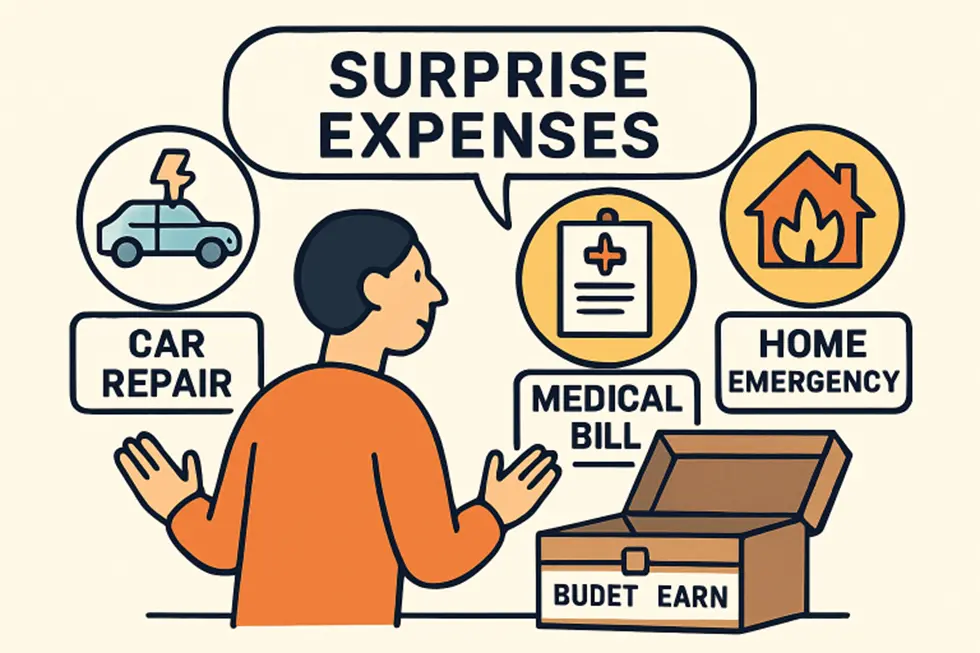Introduction
Life is unpredictable—sometimes, a sudden car repair, medical bill, or home emergency can catch even the most careful planners off guard. While these financial surprises can disrupt your budget, being proactive and creative in your approach can help you navigate uncertain times without sabotaging your long-term financial goals. If you ever need quick access to funds, MaxLend loans can provide a potential solution alongside other strategies for managing urgent costs.
Taking a holistic approach that includes building savings, adjusting spending, tapping into community resources, and earning extra income can make weathering financial storms much more manageable and allow you to stay financially resilient.
Build an Emergency Fund
Setting up an emergency fund is one of the cornerstones of effective financial planning. These contributions quickly add up even if you can only save a small amount monthly. Experts often recommend saving three to six months’ expenses in a high-yield savings account. However, if that amount seems overwhelming, focus first on reaching mini-goals—such as saving your first $500—then gradually increase your target as your financial situation improves. Keeping these savings in a separate account makes it easier to distinguish them from your daily funds. For more guidance, the Consumer Financial Protection Bureau offers helpful tips on getting started.
Adjust Your Budget
When an unexpected bill lands in your lap, it’s time to revisit your budget. Look for temporarily adjustable categories, such as leisure activities, subscription services, or discretionary spending on dining out. Pausing or scaling back on non-essential expenses can free up funds, helping you cover sudden costs without taking on new debt. If you haven’t done so already, try using budgeting apps or spreadsheets to track your spending and identify areas to trim. You may find that even small sacrifices can add up to significant savings over time.
Sell Unused Items
Decluttering not only creates space in your home but can also provide a quick financial boost. Go through closets, the garage, or your attic to find things you no longer use—electronics, gently worn clothes, baby items, or old furniture. Online marketplaces make selling items locally or nationwide easy, allowing you to declutter and raise money quickly when an emergency arises.
Explore Side Hustles
Another great way to tackle unexpected expenses is to boost your income. Side hustles and gig work—ride-sharing, food delivery, or freelance projects—are increasingly accessible thanks to various platforms. If you have a particular skill, consider offering lessons, tutoring, or consulting online. Platforms can help you connect with clients who need your expertise. Even temporary gigs or seasonal positions can fill a financial gap in a tight month.
Utilize Community Resources
Your community may offer valuable programs to help during a tough financial stretch. Food banks, utility assistance programs, and local nonprofit organizations exist to provide short-term relief for critical needs. Often, these resources are available regardless of income, and can help cover gaps when your budget is stretched thin. To learn more about available options, visit your city or county government website, or contact organizations for referrals and advice tailored to your local area.
Consider Payment Plans
In many cases, service providers are willing to work with you if you communicate early. Whether it’s a medical bill, an auto repair, or an unexpected vet expense, ask about installment plans or hardship programs. Setting up a payment plan splits a large bill into manageable amounts, helping you keep up with your obligations while giving you time to re-balance your budget. This transparent approach can also help protect your credit score, since late or missed payments are reported less frequently when actively working with the provider.
Use Credit Cards Wisely
Credit cards are tempting as a fast fix but come with risks if not managed carefully. If you must use a card, prioritize ones with lower interest rates or a 0% introductory APR offer, which can help you carry a balance interest-free for several months. Always read the terms, pay at least the minimum monthly payment, and develop a repayment strategy to avoid costly interest charges or damage to your credit. For guidelines, the NerdWallet guide on using credit cards offers in-depth advice.
Borrow Responsibly
If borrowing funds becomes necessary, take the time to compare options and apply online for the most favorable personal loan terms. Carefully review interest rates, repayment schedules, and any hidden fees to ensure the new monthly payment fits within your updated budget. Exploring trusted lenders like a MaxLend loan can provide flexible solutions, especially when quick access to funds is critical. You might also consider turning to local credit unions or family or friends, who may offer support with little to no interest. Regardless of where the help comes from, borrowing should remain a last resort—only after exploring all other ways to avoid unnecessary debt. You can face financial surprises without significant disruption by staying proactive, adjusting your spending, seeking extra income, and asking for help.
Also Read-The Architectural Design Process: From Concept to Construction
